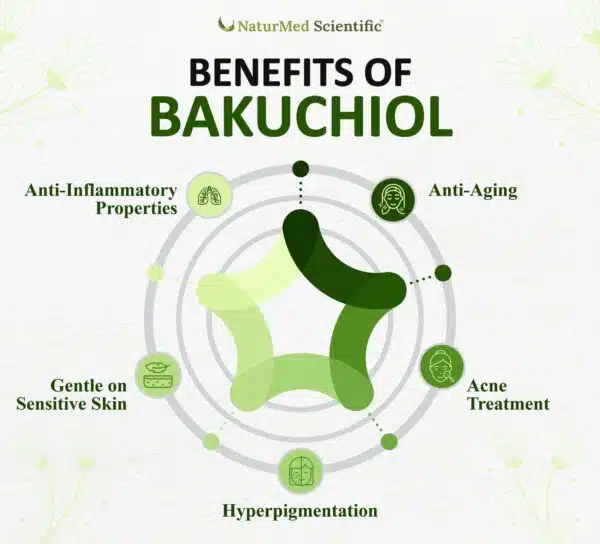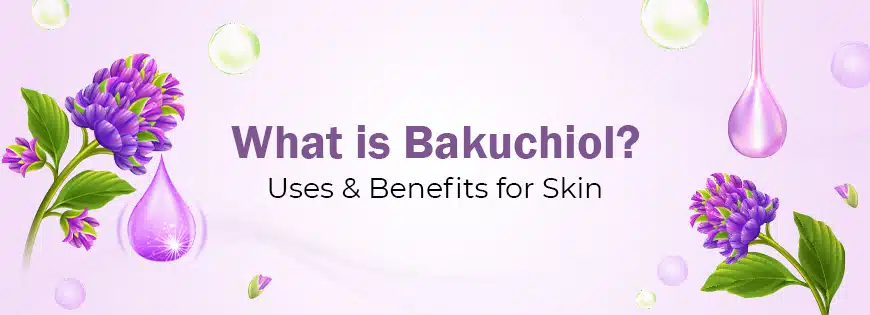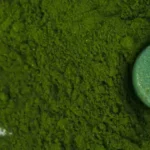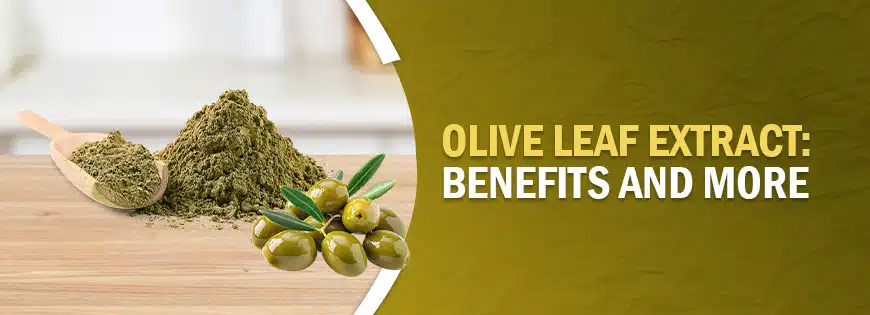In the world of skincare, new ingredients are continuously introduced, promising various benefits ranging from anti-aging to acne reduction. One ingredient that has recently gained significant attention is Bakuchiol, a plant-based compound touted as a natural alternative to retinol. Derived from the seeds and leaves of the Psoralea corylifolia plant, Bakuchiol has shown promising results in clinical studies for improving skin health, with fewer side effects than traditional retinoids.
What is Bakuchiol?
Bakuchiol (pronounced ba-koo-chee-ol) is a phenolic compound that comes from the seeds and leaves of the Psoralea corylifolia plant, commonly known as Babchi. This plant has been used for centuries in traditional Ayurvedic and Chinese medicine to treat a variety of conditions, including skin diseases. In recent years, Bakuchiol has garnered attention in modern skincare for its ability to mimic the benefits of retinol, a well-known ingredient for anti-aging and skin rejuvenation.
Unlike retinol, Bakuchiol is not a derivative of vitamin A, but it has similar effects on the skin without causing irritation, dryness, or increased sun sensitivity, which are common side effects associated with retinol use. The appeal of Bakuchiol lies in its natural origin and its gentler profile, making it suitable for sensitive skin types.
Also Read: Aloe Vera: A Short Review
Mechanism of Action
Bakuchiol operates through similar biological pathways as retinol, engaging with retinoid receptors in the skin. This interaction stimulates collagen production and promotes skin cell turnover without the irritation often associated with retinoids. The compound is noted for its ability to reduce oxidative stress by scavenging reactive oxygen species (ROS), which are known to contribute to skin aging and damage.
Uses of Bakuchiol in Skin Care

Bakuchiol has become an increasingly popular ingredient in serums, creams, and oils formulated for anti-aging, acne treatment, and overall skin health. Due to its mild nature, it can be used both in the morning and evening without causing photosensitivity or irritation. Below are some common uses of Bakuchiol in skin care:
1. Anti-Aging
One of the primary uses of Bakuchiol is in anti-aging products. Its ability to stimulate collagen production helps to firm the skin, reduce fine lines, and smooth out wrinkles.
The study published in International Journal of Cosmetic Science (2014) aimed to compare the skin care effects of retinol and bakuchiol, a natural compound derived from Psoralea corylifolia. Through gene expression profiling using a full-thickness skin model, it was found that bakuchiol, though structurally different from retinol, exhibits similar functional effects. Both compounds increased the expression of collagen types I, III, and IV and aquaporin 3, contributing to improved skin properties.
In a clinical trial, bakuchiol demonstrated significant anti-aging benefits, including reduction in wrinkles, pigmentation, and photo-damage, without the side effects typically associated with retinol. The findings suggest bakuchiol as a promising retinol alternative for anti-aging skincare.
2. Acne Treatment
Bakuchiol also shows promise in treating acne due to its anti-inflammatory and antibacterial properties. It works to reduce inflammation, which is a significant contributor to acne formation, while also helping to regulate oil production.
The 2011 article by Ratan K. Chaudhuri and Francois Marchio highlights bakuchiol as an effective acne treatment. Bakuchiol, derived from Psoralea corylifolia, targets acne by reducing sebum production, inhibiting acne-causing bacteria, and controlling inflammation. It also helps prevent acne scarring by reducing collagenase activity.
In clinical trials, bakuchiol, especially when combined with salicylic acid, significantly reduced acne without the irritation typically caused by retinoids, making it a safe and promising alternative for acne management.
3. Hyperpigmentation
Another significant benefit of Bakuchiol is its ability to reduce hyperpigmentation and even out skin tone. It works by inhibiting melanin synthesis, the pigment responsible for dark spots and uneven skin tone.
The 2019 clinical trial published in the British Journal of Dermatology compared the effectiveness and side effects of bakuchiol and retinol in treating facial photoaging. In this 12-week randomized, double-blind study, 44 participants applied either 0.5% bakuchiol twice daily or 0.5% retinol once daily.
Both compounds significantly reduced wrinkles and hyperpigmentation with no difference in efficacy. However, retinol users experienced more side effects such as skin scaling and stinging, while bakuchiol was better tolerated. The study concludes that bakuchiol is a promising, gentler alternative to retinol for anti-aging and hyperpigmentation treatments.
4. Gentle on Sensitive Skin
Unlike traditional retinoids that can cause irritation, redness, or peeling, bakuchiol is well-tolerated by most skin types, including sensitive skin. This makes it an excellent choice for individuals who have experienced adverse reactions to retinol products.
5. Anti-Inflammatory Properties:
The anti-inflammatory effects of bakuchiol can help soothe conditions such as acne or eczema, making it versatile for various skin concerns.
The 2019 study published in the International Journal of Molecular Sciences looked at how bakuchiol can reduce inflammation in the brain. The research showed that bakuchiol lowers the production of harmful inflammatory substances like prostaglandin E2 (PGE2) and IL-6 in brain cells.
It works by blocking certain signaling pathways (p38 MAPK and ERK) that cause inflammation. Bakuchiol was also tested in mice and was found to reduce inflammation in their brains. These results suggest that bakuchiol could be useful for treating brain diseases related to inflammation, like Alzheimer’s and Parkinson’s.
How to Use Bakuchiol
Bakuchiol can be incorporated into a skincare routine much like other active ingredients. It is typically found in serums, creams, and facial oils, and can be applied after cleansing and toning. Because it does not cause photosensitivity, it can be used in both morning and evening routines. For best results, apply Bakuchiol-based products consistently, as effects are typically seen after 8 to 12 weeks of use.
Bakuchiol is a promising ingredient for those seeking a natural, gentle alternative to retinol. Its ability to reduce fine lines, improve skin texture, even out skin tone, and treat acne makes it a versatile addition to any skincare routine.
With scientific studies backing its efficacy and safety, Bakuchiol stands out as an effective option for individuals with sensitive skin or those looking to avoid the side effects associated with traditional retinoids. Whether you’re aiming to tackle the signs of aging, acne, or hyperpigmentation, Bakuchiol offers a plant-based solution worth considering.
Disclaimer: The Statement has not been evaluated by the EFSA, KFDA or FDA. This product is not intended to diagnose, treat, cure, or prevent any disease. While the information provided is based on credible references, we do not make any specific claims or guarantees. It is important to consult with your healthcare advisor for personalized advice and guidance related to your health.
References:
- https://pubmed.ncbi.nlm.nih.gov/24471735/
- https://shorturl.at/cVnlx
- https://pubmed.ncbi.nlm.nih.gov/29947134/
- https://www.health.harvard.edu/staying-healthy/bakuchiol-does-it-make-skin-look-younger
- https://www.healthline.com/health/beauty-skin-care/bakuchiol-retinol-alternative
- https://www.ncbi.nlm.nih.gov/pmc/articles/PMC10683784/
- https://www.paulaschoice-eu.com/everything-you-need-to-know-about-bakuchiol
- https://www.health.com/bakuchiol-8621355






